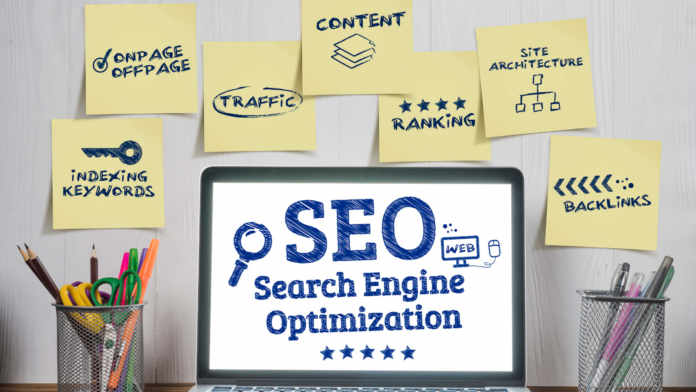Can your startup thrive if no one can find it online? No matter how great your product or service is, visibility is crucial for growth. Many startups rely on paid ads and social media, but these require constant spending for short-term results.
SEO (Search Engine Optimization) offers a sustainable way to rank higher on search engines, attract organic traffic, and build credibility. Unlike paid ads, SEO keeps working even after you stop investing directly. In this blog, we’ll explore why SEO is essential for startup success.
Key Takeaways
- Startups need visibility for growth; SEO offers a sustainable way to attract organic traffic and build credibility.
- SEO helps startups reach the right audience by appearing in front of users searching for their products or services.
- Investing in SEO guarantees long-term growth, as optimized websites continue to attract visitors without ongoing costs.
- SEO builds trust and credibility, improving user experience with fast loading and a mobile-friendly design.
- Key strategies for startups include keyword research, on-page optimization, valuable content creation, and backlink building.
Table of Contents
The Strategic Importance of SEO for Startups
SEO Helps You Reach the Right Audience
Start-ups often struggle with brand awareness. SEO ensures that your business appears in front of people actively searching for your products or services. By optimizing your website for relevant keywords, you can attract high-intent users who are more likely to convert into customers.
However, SEO is a process that requires consistent effort. From keyword research to content optimization and link-building, startups need a solid strategy to stay competitive. For businesses looking to scale their SEO efforts efficiently, the best seo reseller has access to expert resources without the overhead of an in-house team.
SEO Provides Long-Term Growth
Unlike paid ads, which stop driving traffic once the budget runs out, SEO compounds over time. The more you optimize your website and create valuable content, the higher your rankings will climb. Over time, this builds a steady stream of organic visitors without ongoing advertising costs.
SEO Builds Trust and Credibility
Users tend to trust organic search results more than paid ads. When your startup ranks high on Google, it signals authority and reliability. SEO also includes optimizing website speed, mobile-friendliness, and user experience (UX), which further builds trust with visitors.
How SEO Supports Long-Term Business Growth
- SEO Attracts High-Quality Traffic: People who find your business through search engines are actively looking for solutions that match your offering. This means they are more likely to engage with your content, sign up for your services, or make a purchase.
- SEO Improves User Experience: Google prioritizes websites that are easy to navigate, fast-loading, and mobile-friendly. A well-optimized website ensures that users stay longer, explore multiple pages, and take action. Good UX also leads to lower bounce rates, which positively impact rankings.
- SEO Gives Startups a Competitive Edge: Big brands have large marketing budgets, but startups can compete by focusing on SEO. By targeting niche, long-tail keywords, and creating high-quality content, startups can outperform larger competitors in search results.
Key SEO Strategies for Startup Success
Keyword Research
Finding the right keywords is the first step to SEO success. Startups should focus on relevant, high-intent, and less competitive keywords to improve search rankings. Instead of broad terms, using long-tail keywords like “best email marketing tools for startups” helps attract the right audience.
SEO tools like Google Keyword Planner, Ahrefs, and SEMrush can help analyze search volume, competition, and user intent. Understanding whether users are looking for information, products, or services ensures your content aligns with their needs and increases visibility.
Optimizing On-Page SEO Elements
A well-structured website improves rankings and user experience. Startups should optimize title tags and meta descriptions by including important keywords and making them engaging. Proper use of header tags (H1, H2, H3) also helps organize content for better readability and SEO performance.
Internal linking connects related blog posts and pages, improving navigation and engagement. Optimizing images with descriptive alt text and compression helps speed up loading times and enhances accessibility. These small yet powerful changes can make a website more search-friendly.
Creating Valuable Content That Ranks
High-quality content is key to attracting traffic and building credibility. Startups should focus on informative blog posts, guides, and how-to articles that solve real problems. Instead of just promoting services, content should offer genuine value and answer common industry-related questions.
Keeping language simple and easy to understand ensures the content is accessible to a wider audience. Well-structured, engaging content not only ranks higher on search engines but also keeps users on the site longer, improving SEO performance.
Building Backlinks to Increase Authority
Backlinks act as a trust signal for search engines, boosting website authority. Startups can gain backlinks through guest blogging by writing for industry-related websites. Creating shareable content like infographics and research reports can also attract natural links from other sites.
Networking with bloggers, influencers, and journalists can help gain media mentions and increase credibility. Consistently building high-quality backlinks improves domain authority and search rankings, helping startups stay ahead of the competition.
Tracking SEO Performance & Making Improvements
SEO requires regular monitoring to measure results and improve strategies. Startups should track website traffic, keyword rankings, and engagement metrics to see what’s working. Understanding how many visitors come from search engines and how they interact with content helps refine SEO efforts.
Tools like Google Analytics, Google Search Console, and Ahrefs provide insights into search performance and user behavior. Monitoring bounce rates, time on page, and keyword rankings helps identify areas for improvement. By making data-driven updates, startups can continuously improve their SEO and grow their online presence.
Common SEO Challenges Startups Face & How to Overcome Them
- Limited Budget for SEO: Many startups assume SEO is expensive, but it’s possible to start with minimal investment. Focus on on-page SEO and content marketing first. Free tools like Google Search Console and Ubersuggest can also provide valuable insights.
- High Competition for Popular Keywords: Big brands dominate search results for broad keywords, so startups should target specific, niche keywords. Instead of competing for “email marketing,” try ranking for “best email marketing tools for small businesses.”
- Slow SEO Results: SEO is not an overnight success strategy. It takes time, but consistent effort leads to exponential results. Focus on continuous improvement, content updates, and link-building.
One such perfect long-term investment is SEO While it takes time and consistency to reflect its results, a patient investment will more than pay for itself. Additionally, in giving quicker precedence to SEO, startups have a good fighting chance of capturing their right audiences and ensuring long-term success.
FAQs
Search engine optimization helps startups leverage online visibility, attract organic traffic, and generate leads. In doing so, it is a cost-efficient way to build brand authority, compete on larger business scales, and drive sustainable growth.
SEO builds long-term credibility that, while slowly, will keep improving SEO. Long-term business revenues can be generated without continuous spending on ads.
The most important long-term SEO principle involves consistency in the creation of quality content, optimization through keywords, and the building of backlinks. Focusing on user experience, technical SEO, and adapting to algorithm updates ensures sustainable search visibility and success.
Though paid ads bring quick results, SEO for organic traffic, lead generation, and authority-building is a long-term marketing strategy that can be very important to startups. Simply put, focusing on keyword research, on-page optimization, quality content, backlinks, and performance tracking will enable a startup to rank on SERP pages much higher than its counterparts.











